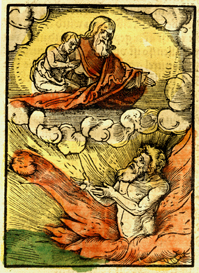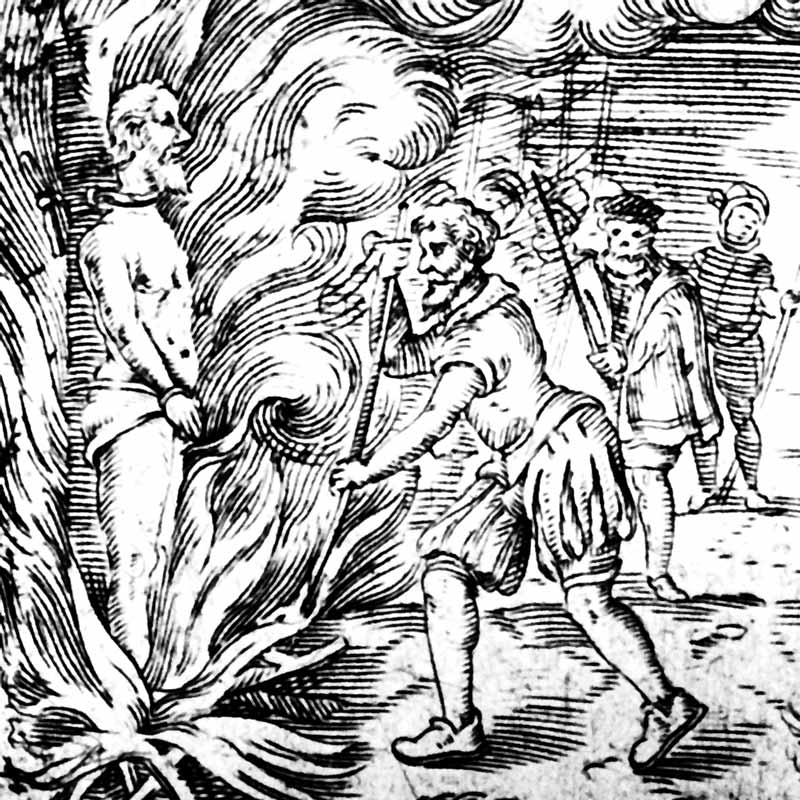Remarkable men of the past such as R.
Akiva have remarked that scripture can have many faces or interpretations. In
years of biblical exposition, often times commentators have been guilty of
attempting to support or promote specific points in order to bolster doctrinal views.
This is not seeking truth, merely protecting positions.
Pretending that some passages do
not contain difficulties is not the answer, but on the other hand presuppositions
about any passage (e.g. such as a “heaven” doctrine would have never been
naturally assumed or explicitly seen by the audience) or to interpret a passage
with latter historical and theological developments is to impose upon the text
itself. Reading into a text a later or foreign (e.g. Platonic philosophy or Hellenistic
axioms) idea that would not have been intended by the initial telling is to do
it a great disservice and miss the message.
With that said, the account of the “transfiguration” is a
worthy subject of investigation. One reason for its examination is because it
has been suggested in the past (under the influence of a later doctrine) that
Moses and Elijah were able to appear (with Jesus) because of their dwelling in
“heaven”. Is this really the case? Is “heaven” really the destination of the
dying/dead?
The story of the transfiguration is
an echo, or reenactment (to a Jew) of Exodus 24. Moses went up the mountain
with Aaron, the elders, and with Joshua. Exodus 24:15 says, “When Moses went up on the mountain of God,
the cloud covered it, and the glory of the Lord settled [tabernacle] on Mount Sinai.... for six days the cloud
covered it...” Now listen to Matthew 17, “After six days Jesus took with him Peter, James and John and led them
up the mountain... he was transfigured and his face shone like the sun...”
And then Peter said to Jesus, “Lord, I
will put up three shelters (tabernacles)... while he was speaking a bright cloud enveloped them and a voice said,
“This is my Son, whom I love; with him I am delighted. Listen to him.””
And the disciples fell face down.
First, note this declaration from
Heaven/God, and observe how this is completely taken from the Hebrew Scriptures.
This is called “stringing pearls” in Rabbinical writing. The first part of this
passage comes from the Torah, specifically from Gen 22. This immediately gives
the context of the Father’s love for this special son Jesus being like the love
that Abraham had for his special, unique son Isaac. It also shows the difficulty
of having to give up that son.
The phrase “you are my Son” is also found in the K’tuvim (writings) book, Psalms
chapter 2, “I will proclaim the decree: the
LORD said to me, 'you are my son; today I became your father.”
The phrase “whom I love” is also found in the Nevi’im (prophets), in the book
of Isaiah, chapter 42 (one of the
messianic servant chapters): “This is my
servant, whom I uphold, my chosen one, in whom I delight. I have put my spirit
upon him, he shall teach the true way to the nations.”
The last part of the
declaration of God in the passage is “listen
to him.” This phrase comes from the Torah as well. Deut. 18 is a
declaration of the prophet like Moses that would be raised up: “The LORD your God will raise up for you a
prophet from among your own people, like myself; him you shall heed... I will raise up a prophet for them from
among their own people, like yourself: I will put My words in his mouth and he
will speak to them all that I command him; and if anybody fails to heed the words he speaks in My name, I
myself will call him to account.” Simply put, “listen to him.” The God of
Israel is quoting from all three sections of his book, TorahNevi’imK’tuvim
(Tankakh, the Hebrew scriptures, Old Testament).
Next, take a look at Psalm 43 (in
context to the transfiguration passage), “You
are God my stronghold.... Send forth your light and your truth, let them guide
me; let them bring me to your holy mountain to the tents where you live...[where
you tabernacle]...Put your hope in God, for
I will yet praise him, my Savior and my God.” Who is truth? For a Jew -
Moses, Elijah, and the messianic figure of Isaiah 42 are all truth. There is
light, brilliant light. Peter is putting two and two together, piecing the text
together to determine from Psalm 42 - “there is truth and light – we need
tents.” Jesus had said of himself, “I am
the way, the truth, and the life...” John 14:6 and “I am the light of the world...” John 8:12.
In Ex. 34:29-35 Moses’ face is depicted as shining exceedingly bright.
There are possibilities, yet we are told little about these events. There are however,
some givens as to what it meant to
(especially Peter) them right away. There is enough evidence to suggest more
here than meets the eye at first glance. An undisputable fact was Moses being
asleep, dead, at rest awaiting the resurrection of the just, at the coming of
the Messiah (Deut. 34:5-6, Jos. 1, Jude 9).
In Christianity today, some speak
of the kingdom of God/Heaven and some hardly know what it is. This event shows
that the expectation for the realization of that kingdom has been alive for a
long time and these few disciples saw not only Exodus in a live retelling but also
a vision of the culmination and climax. The key to the meaning and explanation
of the transfiguration is in verse 9 of chapter 17. “As they were coming down from the mountain, Jesus commanded them,
saying, ‘Tell the vision to no one until the Son of Man
has risen from the dead.’”
Jesus described what they saw as a
vision. Luke even remarks that they “were
speaking of His departure which He was about to accomplish at Jerusalem.”
Visions usually center around something that is to happen in the future. In
this case it centered first, on what Jesus
was about to do, and second, his
departure.
Peter, later in life states (2
Peter 1), “For we did not follow cleverly
devised tales when we made known to you the power and coming of our Lord Jesus
Christ, but we were eyewitnesses of His majesty. For when He received honor and
glory from God the Father, such an utterance as this was made to Him by the
Majestic Glory, ‘This is My beloved Son with whom I am well-pleased’-- and we
ourselves heard this utterance made from heaven when we were with Him on the
holy mountain.”
The Greek word that Peter uses is parousia, which is used elsewhere to
speak of Jesus’ second coming and the establishment of the age to come. The whole context of 2 Peter 1 is speaking and
commenting on the vision at the transfiguration. In verse 11 it states, “for in this way the entrance into the
eternal kingdom of our Lord and Savior Jesus Christ will be abundantly supplied
to you.” Also in verse 19, “so we
have the prophetic word made more sure, to which you do well to pay attention
as to a lamp shining in a dark place, until the day dawns and the morning star
arises in your hearts.”
Those specific disciples were given
a vision of the coming kingdom, which
they were proclaiming to the people of Israel, and then later to the rest of
the world. It was the good news of the kingdom of God. This also fits with the
vision of the prophet Daniel in chapter 7, where the “son of man” comes with
the clouds of heaven. This vision closely resembled Sinai, as some of the
prophets seemed to imply.
In Hebrews 11 it is said that all
those heroes of old died “without
receiving the promises”, and “apart
from us they [will] not be made
perfect” (verse 13, 40). To read a “heaven” doctrine into these passages (as
many commentators have done in years gone by) is to read something into it which
it never meant to them, certainly not to Peter, and likewise should not to us.
So then, what about Elijah and his
heavenly ascent? Like already mentioned, Moses is asleep, dead (Deut. 34:5-6, Jos. 1, Jude 9). It is
worthy of consideration that Elijah is also asleep. Here is why:
2 Ki. 1:17 “So Ahaziah died according to the word of the LORD which Elijah had
spoken. And because he had no son, Jehoram became king in his place in the
second year of Jehoram the son of Jehoshaphat, king of Judah.”
2 Ki. 3:1 “Now Jehoram the son of Ahab became king over Israel at Samaria in the
eighteenth year of Jehoshaphat king of Judah, and reigned twelve years.”
Jehoram (son of Ahab) came to rule over
the Israel (the northern division) in 852 -853 BCE.
Immediately following this proclamation (verses and chapters were not put in
until roughly the 14th century CE.) it tells us that Elijah is taken. The narrative lets us assume that
it is right around the same time (852 BCE.)
After Jehoshaphat died, Jehoram
became the only king of Judah in 848 BCE., “Now
in the fifth year of Jehoram the son of Ahab king of Israel, Jehoshaphat being
then the king of Judah, Jehoram the son of Jehoshaphat king of Judah became
king.” 2 Ki. 8:16
From the time Elijah disappeared
(right around 852 BCE.) until 841 BCE. there was a Jehoram in Israel and Judah
(sons of Ahab and Jehoshaphat respectively). According to 2 Chron 21:11, “Moreover, he (Jehoram of Judah) made high places in the mountains of Judah,
and caused the inhabitants of Jerusalem to play the harlot and led Judah astray.”
Jehoram reigned eight years
(848–841 BCE.). 2 Ch. 21:12-20, “Then a letter came to him from Elijah the prophet saying, ‘Thus says
the LORD God of your father David, 'Because you have not walked in the ways of
Jehoshaphat your father band the ways of Asa king of Judah,but have walked in
the way of the kings of Israel, and have caused Judah and the inhabitants of
Jerusalem to play the harlot as the house of Ahab played the harlot, and you
have also killed your brothers, your own family, who were better than you,
behold, the LORD is going to strike your people, your sons, your wives and all
your possessions with a great calamity; and you will suffer severe sickness, a
disease of your bowels, until your bowels come out because of the sickness, day
by day.' Then the LORD stirred up against Jehoram the spirit of the Philistines
and the Arabs who bordered the Ethiopians; and they came against Judah and
invaded it, and carried away all the possessions found in the king's house
together with his sons and his wives, so that no son was left to him except
Jehoahaz, the youngest of his sons. So after all this the LORD smote him in his
bowels with an incurable sickness. Now it came about in the course of time, at
the end of two years, that his bowels came out because of his sickness and he
died in great pain. And his people made no fire for him like the fire for his
fathers. He was thirty-two years old when he became king, and he reigned in
Jerusalem eight years; and he departed with no one's regret, and they buried
him in the city of David, but not in the tombs of the kings.”
This letter came from Elijah after
he had already been “taken” (at least in the narrative). It’s not unreasonable
to propose that the narrative is out of order, but is there sufficient evidence
to prove it over the current reading? This would have taken place roughly 8-10
years after Elijah was already gone,
obviously raising more questions.
Additionally, in 2 Kings 2:11 the
text informs that Elijah “went up to
heaven by a whirlwind”. Verse 17 depicts the prophets having thought he
dropped on some nearby mountain and sent 50 men on a search for him (without success
for 3 days). They didn’t think he was taken to the throne of God (heaven), that
would have been unheard of; this understanding is Christian speculation read into the text. They thought he had been
relocated somewhere else. It is just
as plausible to believe that he was transported through the sky to some other
location.
The story in Acts 8:39 tells of a
similar incident involving the “Spirit” (which is wind in Hebrew ruach) [the wind] snatching and
transporting Philip; he was then found at Azotus (vs. 40). As stated before, the body of Moses was also taken and buried
by God in some unknown location according to the scripture. Jesus even said
that no one would ascend into heaven
before the son of man (himself) John 3.






